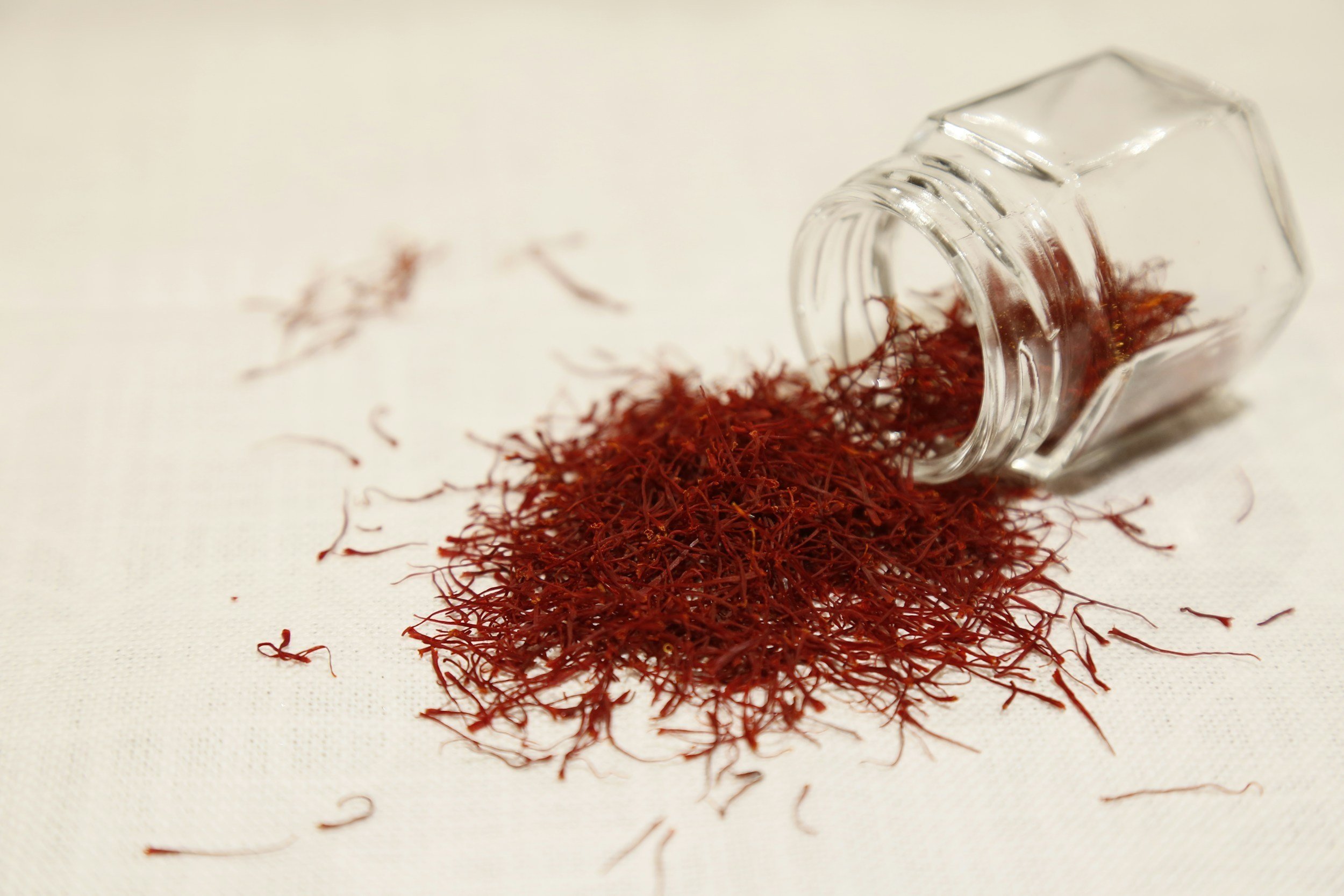
Explore the remarkable health benefits of saffron, the “red gold” spice that could transform your well-being. This article delves into saffron’s potential to improve mood, enhance cognitive function, and support ADHD management. Packed with antioxidants, saffron may help alleviate depression, boost memory, and promote heart and eye health. Recent studies highlight its promise as a complement to traditional ADHD treatments, potentially reducing symptoms. Discover safe usage guidelines, appropriate dosages, and ways to add this golden spice to your wellness routine. Learn why saffron is gaining attention in holistic health circles and how it might positively impact your life.
The Golden Spice That Could Transform Your Health
You may have seen in my recent Instagram stories that I’ve been excited to share about the health benefits of saffron. The response from our community has been overwhelming, with many of you asking for more details. That’s why I’ve decided to dive deeper into this fascinating topic in this blog post.
Saffron, often called “red gold,” is more than a vibrant culinary spice. This exquisite ingredient, derived from the Crocus sativus flower, has been treasured for centuries for its unique flavour, colour, and impressive health benefits. Let’s dive deep into the world of saffron, exploring its potential to enhance your well-being and possibly even support those dealing with conditions like ADHD.
The Magic of Saffron: What Makes It Special?
Saffron’s rarity and labour-intensive harvesting process contribute to its status as one of the world’s most expensive spices. Each saffron crocus flower produces only three red stigmas, which must be carefully hand-picked and dried. This meticulous process results in a spice that’s not only flavorful but also packed with potent bioactive compounds.
The Health Benefits of Saffron: A Golden Opportunity
-
Mood Enhancement: Feeling blue? Saffron might be the natural mood booster you’ve been seeking. Along with Ginkgo Biloba and Lemon Balm, Saffron consumption is growing every day because of its potential therapeutic applications such as anti-depressant properties. Studies suggest that saffron can help alleviate symptoms of depression and anxiety, with some research indicating it may be as effective as certain prescription antidepressants.
-
Cognitive Function: Saffron is one of the herbal nootropics. It has shown promise in enhancing cognitive function, including improving short-term memory. Even more intriguingly, some studies suggest it may help improve symptoms of mild to moderate Alzheimer’s disease, similar to Donepezil, but without the side effects.
-
Antioxidant Powerhouse: Saffron is rich in antioxidants like crocin and crocetin, which help protect your body from oxidative stress and inflammation. This antioxidant action is at the heart of many of saffron’s health benefits.
-
Eye Health: Your vision might benefit from saffron too. Research indicates that saffron can improve vision and potentially protect against age-related macular degeneration.
-
Weight Management: If you’re watching your weight, saffron could be a helpful ally. Some studies suggest that saffron may help reduce appetite and promote feelings of fullness, potentially aiding in weight loss efforts.
-
Heart Health: Saffron has been shown to have a positive impact on heart health markers. It may help lower cholesterol levels and reduce the risk of heart disease.
-
Skin Health: Thanks to its high content of vitamin C and glutathione, saffron could be your skin’s new best friend. These nutrients fight free radical damage that contributes to premature ageing and skin dullness.
-
Digestive Aid: Saffron may help against gastrointestinal tract disorders. It may help soothe digestive discomfort by promoting blood flow to the digestive system and coating the gut to calm inflammation.
-
Hormone Health: For those dealing with PMS symptoms, saffron has shown promise as an effective treatment, with benefits increasing over time.
Saffron and ADHD: A New Frontier?
One of the most exciting areas of saffron research is its potential impact on Attention Deficit Hyperactivity Disorder (ADHD) symptoms. While more studies are needed, initial findings are promising:
-
A 2021 study found that Combining methylphenidate (MPH) with saffron is more effective in treating patients with ADHD than using either treatment alone. This combined approach may reduce the duration of therapy and improve overall effectiveness.
-
A more recent review of clinical studies found that Saffron demonstrated effectiveness as both an adjunct to MPH and as a standalone treatment for ADHD, with no significant safety concerns.
It’s important to note that while these results are encouraging, saffron should not be considered a replacement for prescribed ADHD medications without consulting a healthcare provider. Instead, it may be viewed as a potential complementary therapy, again, after consulting one’s healthcare provider.
Using Saffron Safely
If you’re considering adding saffron to your wellness routine, keep these points in mind:
-
Dosage: Typical dosages range from 30 mg to 100 mg daily, standardized to contain 1.5% crocin.
-
Quality Matters: Ensure you’re using high-quality, well-researched supplements.
-
Consult a Professional: Herbs are effective! Always talk to your healthcare provider before starting any new supplement, especially if you’re taking medications or have existing health conditions.
-
Who Should Avoid Saffron: Pregnant or breastfeeding women, those with allergies to saffron or related plants, and individuals with certain medical conditions should avoid saffron.
Incorporating Saffron into Your Life
Beyond supplements, you can enjoy the benefits of saffron by incorporating it into your cooking. A little goes a long way – just a few threads can add a beautiful golden hue and unique flavour to rice dishes, soups, and baked goods.
The Future of Saffron Research
As interest in natural remedies grows, we can expect to see more research into saffron’s potential health benefits. From its effects on mood and cognition to its possible role in ADHD management, saffron is proving to be a spice worth watching in the world of holistic health.
Conclusion
Saffron’s journey from ancient medicinal use to modern scientific study is a testament to the enduring power of natural remedies. While more research is needed to fully understand its potential, the current evidence suggests that this golden spice could be a valuable addition to a healthy lifestyle.
Are you fascinated by the potential of natural remedies like saffron?
Do you want to learn more about evidence-based approaches to holistic health?
Join us in The Call, a truly unmatched experience where we dive deep into the science behind herbs and natural remedies. People say they “got their money’s worth in one week”.
Get access to cutting-edge research and practical applications of nature’s most powerful healing agents!
Don’t miss this opportunity to transform your health knowledge and connect with like-minded individuals.
Sign up for The Call today and start your journey towards a more informed, empowered approach to wellness!
sign up today, get your money’s worth next week
Editor’s note: The information in this article, as well as all content produced and shared by Ivy Chan Wellness, including programs, memberships, and downloadables, are provided for informational and educational purposes only. They are not a substitute for professional medical advice, diagnosis, or treatment.






Comments +